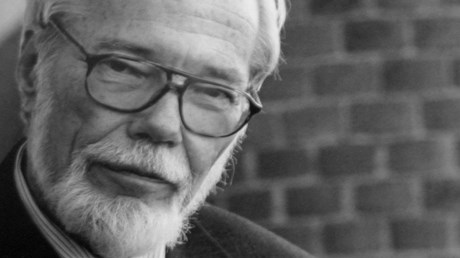Here’s why one of the leaders of postliberalism believed conservative Protestants would carry the torch.

George Lindbeck, longtime professor of historical theology at Yale Divinity School, passed away on January 8. In evangelical circles he is best known as the author of The Nature of Doctrine: Religion and Theology in a Postliberal Age (Westminster Press, 1984) and as one of the two founding fathers of postliberal thought, the other being Hans Frei.
One important point of clarification is warranted at the outset. There remains a lot of uncertainty among evangelicals as to what exactly is “postliberalism.” Simply put: the “liberalism” in postliberalism is not meant to refer narrowly to progressive, leftish, revisionary thought per se. The target is, rather, those forms of broader modern liberalism which have produced certain ways of thinking about faith and the church which can be found in both conservative and in so-called “liberal” churches.
This is shown simply in the commitment to two priorities: (1) The priority of the rights and freedoms of the individual over those of the community and (2) The priority of the present experience of the individual in the moment over the past and over traditions.
Postliberals seek, in a host of ways, to resituate the individual more primarily in community and in tradition(s), correcting the distortions that they see in both right and left forms of “liberalism.” The current political situation and the way that so many Christians have ambivalence (rightly so) about both the “right” and the “left” is evidence of how relevant postliberal thought continues to be on this score. There remains a lot that evangelicals can learn from George Lindbeck.
Constructive Criticism
The notion that evangelicals have much to learn may seem condescending, …
Source: Christianity Today Most Read